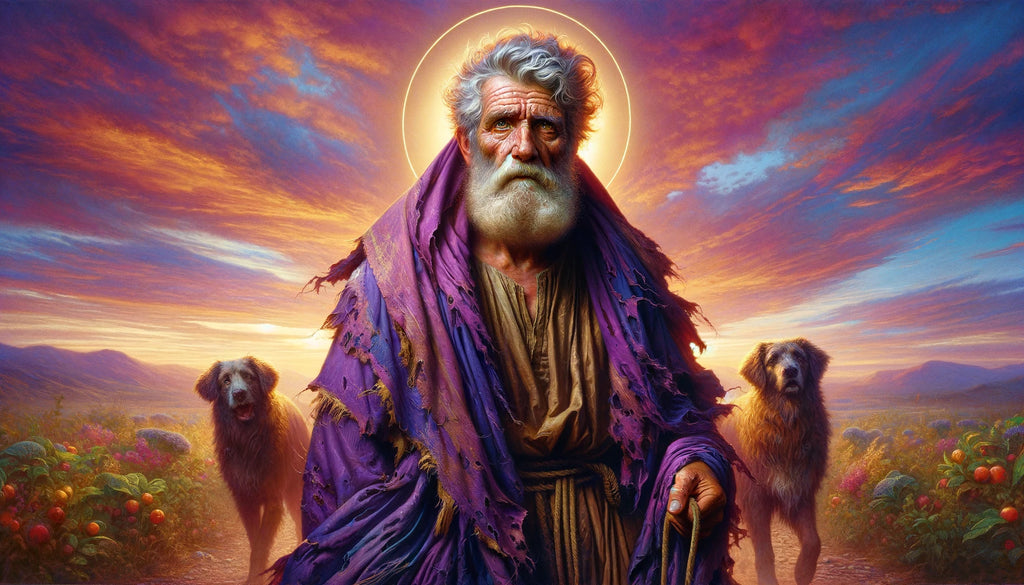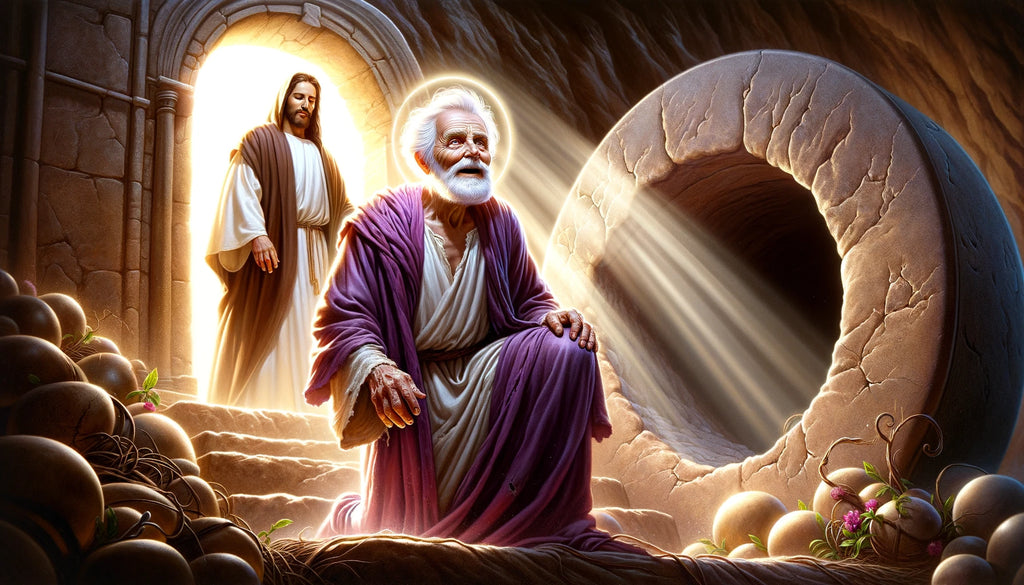San Lázaro: Patron of Suffering and Healing
Unveiling San Lázaro
San Lázaro, a revered figure across various spiritual traditions, is most famously known as the man Jesus Christ resurrected from the dead, according to the New Testament.

His persona transcends biblical narratives, having been syncretized in Afro-Caribbean cultures with the Orisha Babalú Ayé, the deity associated with illness and healing. This cultural amalgamation has transformed him into a symbol of endurance, perseverance, and hope, sought after by those in search of relief amid despair and sickness.
The Origin and Significance of San Lázaro
San Lázaro's story is one of profound transformation and a testament to the power of faith. His death and resurrection are pivotal events that demonstrate Jesus's miraculous authority over life and death, offering believers a tangible promise of eternal life.

Within Santería, San Lázaro as Babalú Ayé epitomizes the human duality of suffering and healing, where faith in the divine serves as a salve for both physical and spiritual afflictions.
The Symbols and Attributes of San Lázaro
San Lázaro's iconography is rich and varied. In Christian tradition, he is often depicted as a man wrapped in bandages, a sign of his past demise and subsequent resurrection.
In syncretic faiths, he is associated with purple and brown hues, denoting penance and earthly connection. His attributes frequently include two dogs accompanying him, alluding to the legend of these canines tending to his wounds, offering comfort and companionship in his suffering.
The Veneration of San Lázaro
Devotional practices to San Lázaro are diverse but share a common core of gratitude and supplication. Prayers and petitions to San Lázaro are a sanctuary for the sick and marginalized, who see in him a compassionate and merciful patron. Rituals include novenas, masses, and processions, where the faithful often walk on their knees as a sign of humility and penitence.
San Lázaro in the Modern World
Today, San Lázaro remains a pivotal figure in the spirituality of many around the globe. His feast day, December 17th, is a time of significant commemoration and celebration, especially in countries like Cuba, where Afro-Cuban traditions honor him with ceremonies and festivities filled with music, dance, and offerings.
Conclusions
The figure of San Lázaro serves as a reminder of human resilience in the face of suffering and illness. Through his veneration, devotees find solace and hope, forging a deep connection with tradition and community. San Lázaro continues to be a source of inspiration and faith, demonstrating how the spirit can triumph over adversity.



Dejar un comentario